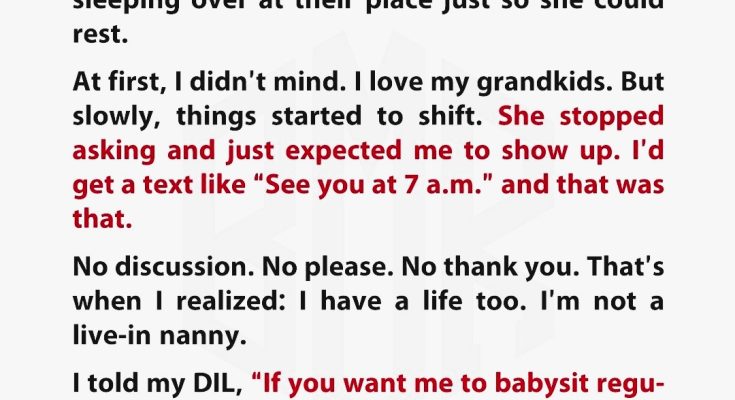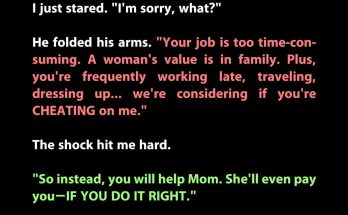For months, I poured myself into helping my son and daughter-in-law with their two young kids—early mornings, late nights, even sleepovers so she could rest. I love my grandkids deeply, but somewhere along the way, my help became an expectation. No more “please” or “thank you,” just texts like “See you at 7 a.m.” I felt invisible, like a live-in nanny with no boundaries. That’s when I realized: I have a life too. And if they wanted regular help, I needed to be respected—not just relied on.
So I asked my daughter-in-law to pay me for babysitting. Nothing outrageous, just a modest hourly rate. She scoffed, called me dramatic, and the next day sent me a bill for groceries I’d eaten while watching the kids. I was stunned. I called my son, hoping he’d understand. Instead, he sided with her. “They’re your grandkids,” he said. “Don’t be so harsh.” I felt slapped. I wasn’t asking for profit—I was asking for boundaries. For recognition. For a little dignity.
I stopped babysitting for a few weeks, hoping they’d notice the gap I left behind. Then one morning, my daughter-in-law showed up at my door, stressed and desperate for help. I wanted to say yes. But I asked if she’d found a nanny yet. She rolled her eyes and left, the kids looking confused. I felt torn. Was I being heartless? Or finally standing up for myself? I love those children, but I don’t want to feel used. That’s not the legacy I want to leave behind.
I still don’t know if I handled it perfectly. But I do know this: love doesn’t mean endless sacrifice. It means showing up with care—and being seen in return. I’ll always be their grandma, but I’m no longer their unpaid lifeline. If we’re going to rebuild peace, it has to start with mutual respect. And maybe, just maybe, this boundary is the first step toward healing.

